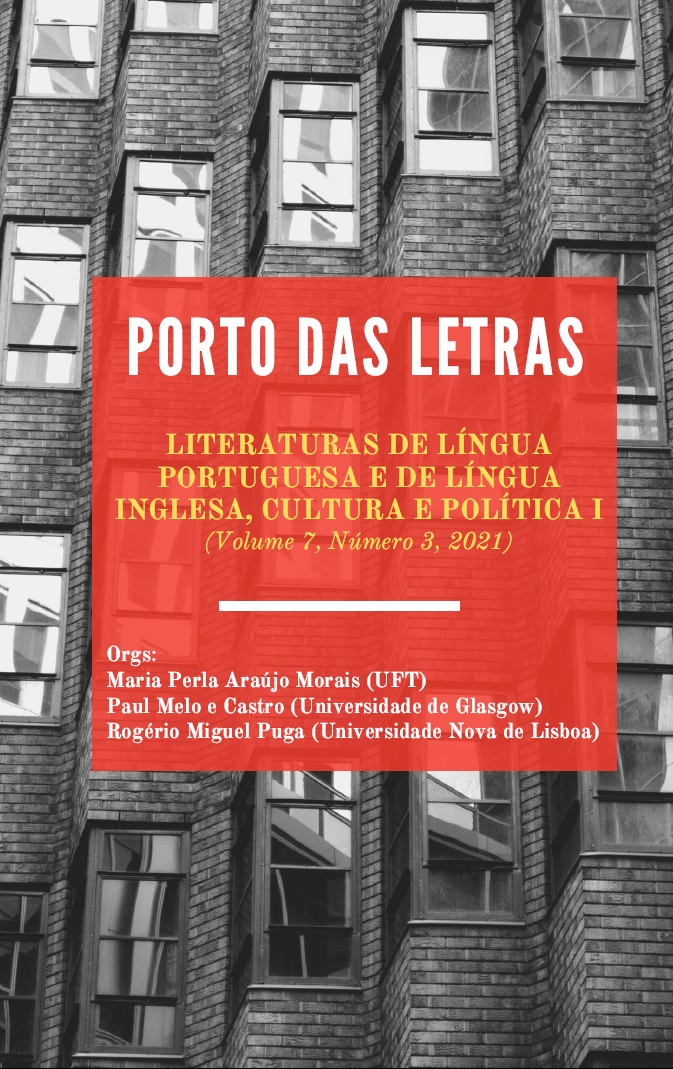MEDIUM CLASS, MIDIA AND DICTATORSHIP: ASPECTS OF REPRESSION IN “SURVIVED”, BY LEILAH ASSUNÇÃO
Keywords:
“Survived” – Leilah Assunção; Brazilian Opinion Fair; Brazilian Military Dictatorship; Brazilian Theater.Abstract
“Survived”, by Leilah Assunção, is the eighth play of the 1978 Brazilian Opinion Fair. It is a volume composed of ten works by important playwrights of the time, who were prevented from reaching the stage by censorship. At the Fair, the themes are diverse, but all of them, in some way, talk about the scenario of repression which Brazil went through since the Coup of 1964. In the case of “Survived”, two central elements are focused in order to shed light on the period, with the clear protagonism of the female characters: the middle class and the media – especially television – in their relations to dictatorial repression. In order to examine these elements of the text, the article [a] presents, in general terms, the dramaturgy of Leilah Assunção and the position of women in the Brazilian theater of the 1970s, with support mainly from Vincenzo (1992); [b] traces a panorama of the historical-political context of the time, with special attention to its unfolding in the theatrical milieu, based on discussions by Michalski (1979) and Pontes Jr. (1999); and [c] constructs a critical reading of the play, focusing mainly on issues related to the middle class – in a dialogue with Almeida and Weiss (1998) – and issues related to the media – based on the study of Hamburger (1998) – during the years of dictatorial repression.
References
ANDRADE, A. L. V. de. Leilah Assunção: Quatro décadas de um teatro da mulher. In: ANDRADE, A. L. V. (Org.). A mulher e o teatro brasileiro do século XX. São Paulo: Hucitec, 2008, p. 394-398.
ASSUNÇÃO, L. Sobrevividos. In: ESCOBAR, C. H. et al. Feira Brasileira de Opinião. Organização de Ruth Escobar. São Paulo: Global, 1978, p. 175-202.
DUARTE, C. L. Feminismo e literatura no Brasil. Estudos Avançados. Vol. 17, n. 49, p. 151-172, dez. 2003.
ESCOBAR, R. Apresentação. In: ESCOBAR, C. H. et al. Feira Brasileira de Opinião. São Paulo: Global, 1978, p. 7-8.
GARCIA, S. A dramaturgia dos anos 1980/1990. In: FARIA, J. R. (Dir.). História do teatro brasileiro, v. 2: do modernismo às tendências contemporâneas. São Paulo: Perspectiva; Sesc-SP, 2013, p. 301-331.
HAMBURGUER, E. Diluindo fronteiras: a televisão e as novelas do cotidiano. In: SCHWARCZ, L. M. (org.). História da vida privada no Brasil: contrastes da intimidade contemporânea. São Paulo: Companhia das Letras, 1998, v. 4, p. 439-488.
MICHALSKI, Yan. O palco amordaçado. Rio de Janeiro: Avenir, 1979.
PONTES JR., G. R. Dramaturgia brasileira contemporânea: uma retórica do impasse. Rio de Janeiro: Ágora da Ilha, 1999.
PRADO, Décio de Almeida. Prefácio em forma de peça. In: ESCOBAR, C. H. et al. Feira Brasileira de Opinião. São Paulo: Global, 1978, p. 09-24.
VINCENZO, E. C. de. Um teatro da mulher: dramaturgia feminina no palco brasileiro contemporâneo. São Paulo: Perspectiva, 1992.
WOOLF, V. Um teto todo seu. Tradução de Bia Nunes de Souza. 2ª. Ed. Rio de Janeiro: Nova Fronteira, 2004.
Downloads
Published
How to Cite
Issue
Section
License
Os autores concordam com os termos da Declaração de Direito Autoral, que se aplicará a esta submissão caso seja publicada nesta revista (comentários ao editor podem ser incluídos a seguir).

